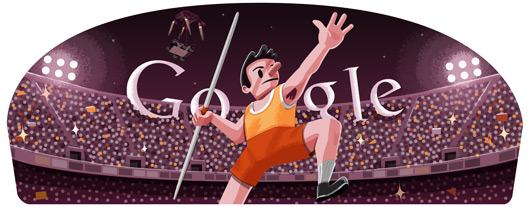A lot can change in four years – back when Beijing hosted the Olympic games in 2008 social media was hardly a feature, nor was online streaming. By contrast, this year we were using tablets, smartphones, and consoles to enjoy the Olympic Games.
With so many changes between this year’s and 2008’s Olympic Games how can we compare London 2012 to Beijing 2008? By using Google search results.
Using Google Insights for Search, which details the most used search terms by country and date, we compared the results categorised under the sports section to see what we looked for during 2008’s Olympic Games and what we searched for during 2012’s Olympic Games. Specifically we look at what US, UK, and Irish users searched for.
The results show that, apart from one or two famous names, a few highs and lows, and national broadcasters, we had one new obsession this year…
Michael Phelps
The name of only one Olympian entered the top ten searches during 2008’s games and 2012’s games, that of U.S. swimmer Michael Phelps. During the London Games “Michael Phelps” was the ninth most searched for term, and the only Olympian to feature on the list. In 2012 he was also one of the fastest growing search terms in the US during the games; searches for “phelps” grew by 1,200%, just ahead of search for the term “michael phelps”, which grew by 1,100%.
Back in 2008 “phelps” and “michael phelps” were the seventh and tenth most popular search terms of the Beijing games. They were also some of the fastest growing search terms; searches for “michael phelps” grew by 2,350% and searches for “phelps” grew by 2,100%.
Phelps, it appears, is not only the most successful Olympian in history, but also one of the most popular. By contrast no athletes’ names appear in UK Google users’ top 10 sports searches during 2008 or 2012. In Ireland, Katie Taylor – the country’s gold medal winning boxer – was the ninth most searched for term. Searches for Taylor grew by 1,900% over the course of the games.
Peaks and troughs
American users conduced their greatest number of searches on Saturday July 28, the day after the opening ceremony. UK users took to Google most on August 4, when the country won six gold medals in a matter of hours. The highest number of searches from Ireland were conducted on August 9, when Taylor won her gold medal.
Broadcasters
This year we searched for more broadcasters than in 2008, as more of us watched the games online. In the US, ESPN was the third highest search term – beating NBC’s controversial coverage, which only managed to become the sixth most searched term (not that that affected NBC’s ratings). Indeed, “NBC Olympics” was one of the fastest growing terms this year. Back in 2008 NBC was the eighth most searched for term, while ESPN was ninth.
In the UK, the BBC, which was been widely praised for its coverage of the games, was the third (“BBC”) and seventh (“BBC sport”) most searched for term. The search term “Olympic BBC” was also hugely popular, with a growth rate of 2,150% over the course of the games. UK satellite broadcaster, Sky, was the tenth most popular search term. Although, back in 2008 BBC was the most popular search term in the UK. “BBC sport” was also ninth, while “olympics BBC” saw a growth rate of 2,500%.
Irish Olympic fans were just as interested in watching the games online this year. The Irish national broadcaster RTÉ was the second most popular search term. The broadcaster’s online streaming service, RTÉ Player was the fifth most searched for term. The BBC followed in sixth place and “Sky sports” was the seventh most searched for term. This contrasts to 2008 when searches for the BBC in Ireland raked only in sixth place, although that was better than searches for RTÉ, which was in eighth.
Our new obsession
This year, in both the UK and USA, one search term broke out against all others to become one of the fastest growing during the two weeks of the London Games. That was searches for the overall “Medal Count“. This could be because the broadcast media was obsessed with counting the number of medals the USA, UK and Chinese teams won – or because Google placed the medal leader board on all search results pages for Olympic related terms, either way this year we really wanted to know how many medals each country won.
In the US, “medal count” was the fourth most popular search term and one of the fastest rising this year but in 2008 the term didn’t even make the top ten. The story is the same for the UK where “medal table” was the fastest growing term but it didn’t even feature in 2008 (or 2004 for that matter).
For the record, the London 2012 medal table results were;
|
Position
|
Country | Gold | Silver | Bronze |
Total
|
|
1
|
United States | 46 | 29 | 29 |
104
|
|
2
|
China | 38 | 27 | 23 |
88
|
|
3
|
Great Britain | 29 | 17 | 19 |
65
|
|
4
|
Russia | 24 | 26 | 32 |
82
|
|
5
|
Korea | 13 | 8 | 7 |
28
|
It seems that for Rio 2016 the medal count might be the main competition that Google users are most interested in. We’ll just have to wait four years to find out.
With all that said it’s worth remembering that since the start of the games on July 27 Chinese users conducted more searches on Google than the UK (in second place) and the US (in third place).













